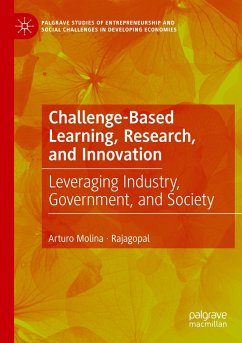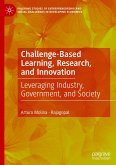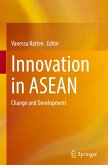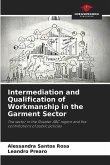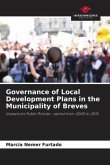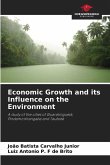Challenge-based research focuses on addressing societal and environmental problems. One way of doing so is by transforming existing businesses to profitable ventures through co-creation and co-evolution. Drawing on the resource-based view, this book discusses how social challenges can be linked with the industrial value-chain through collaborative research, knowledge sharing, and transfer of technology to deliver value.
The work is divided into three sections: Part 1 discusses social challenges, triple bottom line, and entrepreneurship as drivers for research, learning, and innovation while Part 2 links challenge-based research to social and industrial development in emerging markets. The final section considers research-based innovation and the role of technology, with the final chapter bridging concepts and practices to shape the future of society and industry. The authors present the RISE paradigm, which integrates people (society), planet (sustainability),and profit (industry and business) as critical constructs for socio-economic and regional development.
Arguing that the converging of society and industry is essential for the business ecosystem to stay competitive in the marketplace, this book analyzes possible approaches to linking challenge-based research with social and industrial innovations in the context of sectoral challenges like food production, housing, energy, biotechnology, and sustainability. It will serve as a valuable resource to researchers interested in topics such as social challenges, innovation, technology, sustainability, and society-industry linkage.
The work is divided into three sections: Part 1 discusses social challenges, triple bottom line, and entrepreneurship as drivers for research, learning, and innovation while Part 2 links challenge-based research to social and industrial development in emerging markets. The final section considers research-based innovation and the role of technology, with the final chapter bridging concepts and practices to shape the future of society and industry. The authors present the RISE paradigm, which integrates people (society), planet (sustainability),and profit (industry and business) as critical constructs for socio-economic and regional development.
Arguing that the converging of society and industry is essential for the business ecosystem to stay competitive in the marketplace, this book analyzes possible approaches to linking challenge-based research with social and industrial innovations in the context of sectoral challenges like food production, housing, energy, biotechnology, and sustainability. It will serve as a valuable resource to researchers interested in topics such as social challenges, innovation, technology, sustainability, and society-industry linkage.

